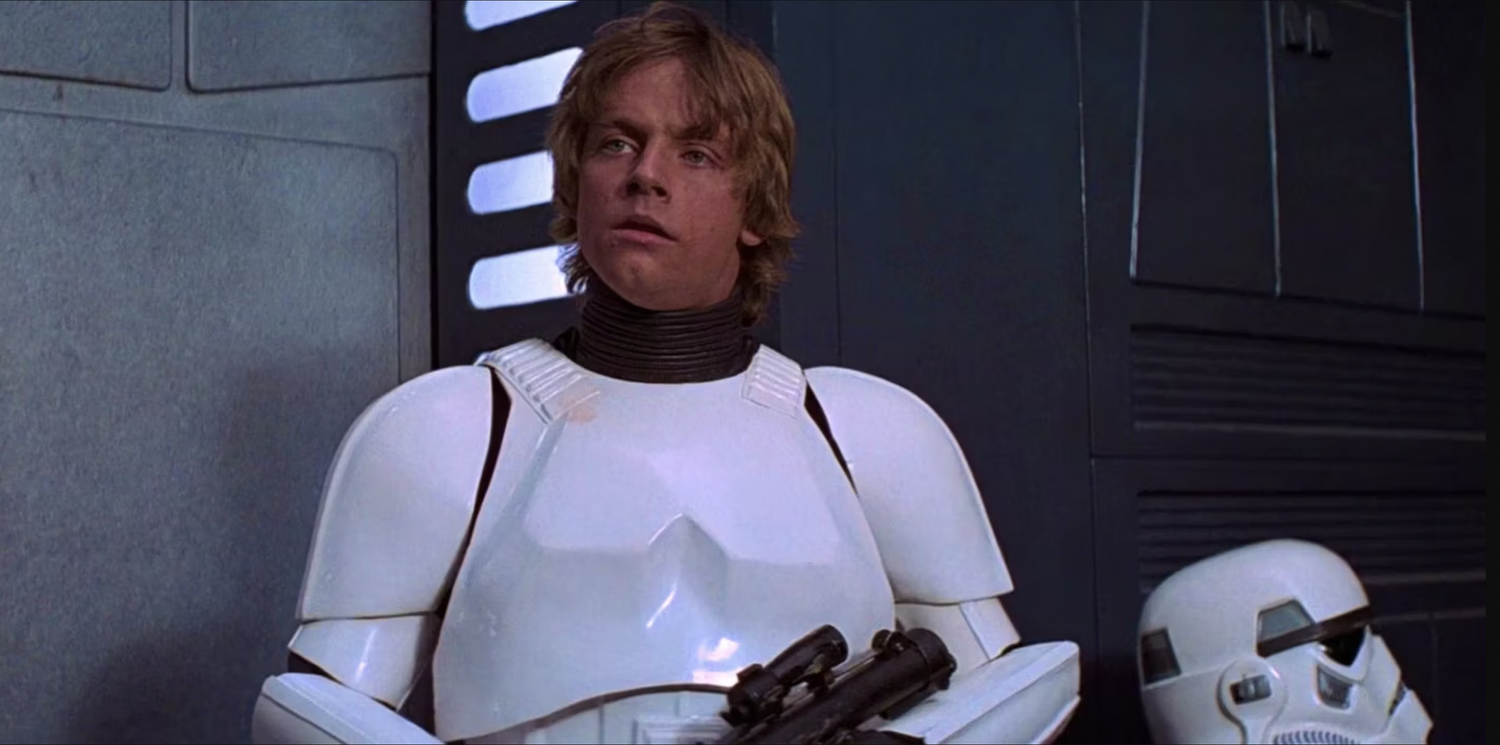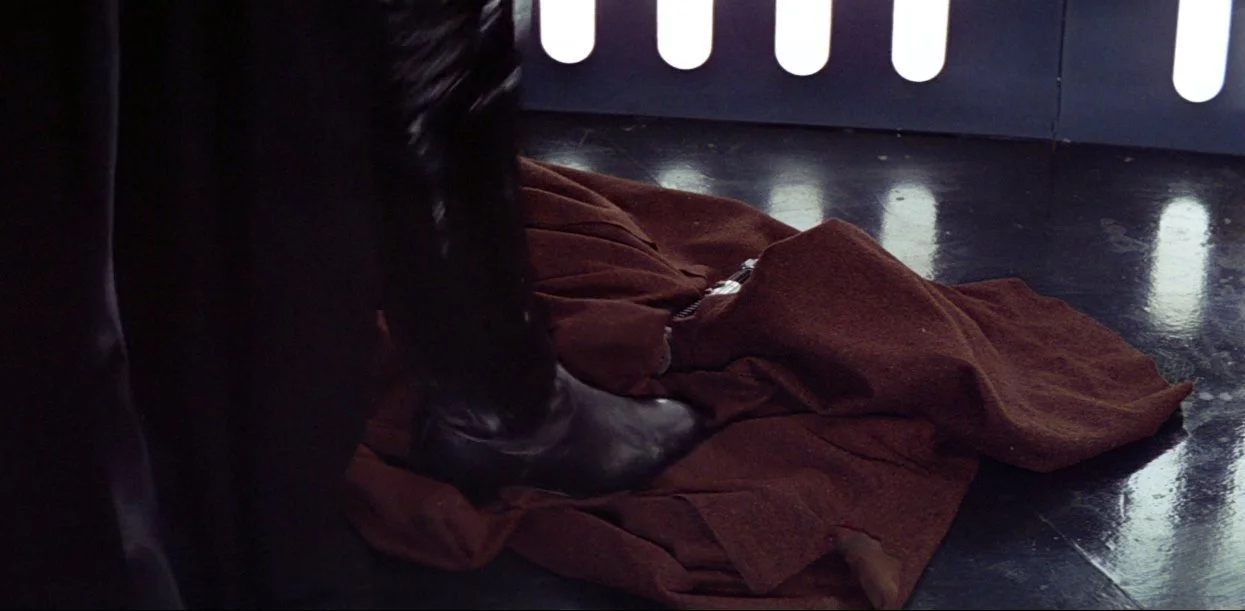Why Obi-Wan Let Darth Vader Kill Him In ‘A New Hope’
Image Source: Dailymotion
It’s 1977.
You are watching a giant, black-suited cyborg fight a wizened old man in single combat. Legions of his faceless minions stand between the protagonists and the clashing blades.
Some timeless dialogue is exchanged, and the old man seemingly gives up and begins to mediate as the towering villain mercilessly swipes through him. All hell breaks loose.
This powerful scene has been parodied, pastiched, and played out over and over again for the last 50 years—and it still holds up today as an enduring piece of cinema. However, no definitive reason has ever been given for why Obi-Wan lets himself be “defeated” on the first Death Star. Fans have, of course, speculated over the years, with some good, outlandish, and downright stupid motivations. So, let’s join them in this melee!
RELATED:
The first and perhaps most obvious reason that Obi-Wan decides to cause an intergalactic scene is because he thought the ensuing madness would allow Luke and the gang to escape while Vader is distracted by his former friend and mentor disappearing into thin force air. Vader’s lust for revenge and anger would blind him to the more strategic action: stopping the rebels.
Secondly, and perhaps more controversially: he knew he couldn’t hold off much longer. No matter how strong in the Force he once was, Obi-Wan was getting older and perhaps a little rusty in the lightsaber combat department. He was facing a larger, stronger, and technologically enhanced foe fueled by hatred and anger (which, let’s face it, had likely only increased over the years). Obi-Wan knew it was only a matter of time. So, he made the difficult decision to use his learnings and become one with the force, rather than let Vader decapitate him. Who knows; losing one’s head may make it more difficult to transition smoothly into a Force ghost.
Image Source: ScreenRant
Luke displays many positive attributes in A New Hope, but he suffers from the same thing many young men face (especially when they have just been told they are a space wizard and given a laser sword): overconfidence. Obi-Wan likely knew that if the duel continued, Luke would have inevitably come charging over to try and help him, very likely getting himself and the future of the Rebellion killed. In a perverse way, perhaps only through sacrificing himself could Obi-Wan finally fulfill his duty of watching over Luke, as he promised all those years ago on Polis Massa.
Even if our band of Rebels managed to escape the Death Star, Obi-Wan knew that Luke probably wouldn’t have allowed the rest of the Rebellion to blow up the Death Star if Obi-Wan was still on board. Perhaps through some vision of the Force, or just confidence in Luke, Obi-Wan felt that his life was less important than “the mission” to blow up the Death Star. The very definition of the greater good.
Towards the end of his corporeal life, Obi-Wan had become incredibly wise and trusting in the ways of the Force. He had spent over 50 years learning the Force, communing with it, and trusting in it. It might be that he simply knew that this was his time, and that death wasn’t the end—merely the next steps on his journey to being one with the Force. We’re getting pretty deep here!
Image Source: Ranker
Potentially, Obi-Wan knew that he had only started Luke on his journey to becoming a Jedi, like his father before him. It’s the kind of extra and flamboyant gesture that the Jedi seemed to love, but perhaps Obi-Wan felt that this grand gesture of sacrificing himself to the Force would give Luke (and Leia, and Han) the push needed to take his training seriously, and show him just how powerful a Jedi could become. Plus, he would be able to continue teaching and guiding him like a blue Siri anyway.
Lastly, and more mundanely than some of the other conjecture, Lucas didn’t know if he would be able to get Alec Guinness to reprise the role in a sequel. It is commonly known that this is why Han was frozen in Carbonite in Empire; Ben’s fate could have been based in something similar.
At the end of the day, though, half the fun of the Star Wars Universe is the mystery and the open nature of a lot of its motivations and workings. What it does mean however is that we were all lucky enough to witness one of the most iconic and surprising death scenes in cinematic history.
READ NEXT:





